SUMMARY
This is AI generated summarization, which may have errors. For context, always refer to the full article.
![[VANTAGE POINT] NGCP debate: More about security than economics](https://www.rappler.com/tachyon/2023/08/tl-ngcp-security-revised.jpg)
There is a lively debate between the nationalist elements in the Senate and the apologists of Chinese investors in the country.
It centers around the National Grid Corporation of the Philippines (NGCP).
Now, do not get carried away by the name. Fully 40% of NGCP is owned by the State Grid Corporation of China (SGCC), while the remaining 60% is controlled by a group of Chinese-Filipinos led by tycoon Henry Sy Jr.
In other words, the NGCP is 100% owned by ethnic Chinese.
The issues that inform the debate are trickling down to the general public. Or maybe it is the other way around, and the issues have bubbled up from the bottom. The senators merely seize on them, in order to ride the resentment that most Filipinos feel towards Chinese presence in the country.
One of the items highlighted in the hearings, aside from NGCP’s ownership of course, was a proposal to stop it from passing on its franchise tax to consumers. There were long discussions, a healthy dose of dramatic pauses, and the requisite “fighting to make life easier for Filipino consumers” rhetoric.
Objectively speaking, what was all of it for? What is the earth-shaking, staggering amount that consumers will save, now that NGCP’s franchise tax is out of the way?
Worry not, for the ERC itself has the answer. In one of the legislative hearings about the issue, ERC Chairperson Mona Dimalanta revealed that the impact of this move on the general public would be the reduction of “less than 1 centavo per kilowatt-hour (kWh)”. According to some reports, that’s around a 1- to 2-centavo reduction on the actual electric bill.
Once these words were uttered, any sensible person should have looked around the room, seen the senators, top executives, resource persons, and legislative staff in attendance, and realized that they were all here to find a way to possibly save around 1% of our annual electricity bill.
Now add the combined man-hours of those in attendance to the actual cost (electricity, food and beverage, transportation, etc.) of the hearings, and let’s ask ourselves: is this how we want our lawmakers use our taxes? To conduct hearing after hearing so that our monthly Meralco bill can go down from P3,000 to P2,999.98?
Sabotage angle
But what concerns me most is the virtual stranglehold the Chinese have on our sensitive power sector.
This probably is not lost to some of our lawmakers. Senator Raffy Tulfo, for one, had suggested, with the support of a number of his colleagues, that President Ferdinand Marcos Jr. initiate moves to regain control of NGCP to forestall possible sabotage by China in case war erupts between that country and ours.
Until January 2009, the government-owned National Transmission Corporation or Transco was in charge of power transmission and distribution. It is high time that the Philippine government on its own or in partnership with a neutral entity did something to protect our national interest.
The idea of war is not so far-fetched, considering the single-minded objective of China to control the Philippines militarily, economically, and culturally.
In response to Tulfo’s proposal, President Marcos agreed to take action “when it becomes necessary.”
Of course, Mr. President, it is necessary! It was necessary years ago. It has become even more imperative now that the Chinese are unrelenting in asserting ownership over the whole West Philippine Sea, under the so-called Nine-Dash Line.
One thing is indisputable. The SGCC exerts dominance over NGCP disproportionate to its 40% stake. It has veto power, for instance, over decisions reached by the majority, for instance.
It is clear that the cards are stacked against the Philippines in more ways than one.
For one thing, all manuals and instructions are written in Kanji, which is why NGCP depends on Chinese engineers and technicians in its day-to-day operation. By the way, the Chinese are paid a hundred times more than their Filipino counterparts.
According to Tulfo, the NGCP has failed to deliver its part of the bargain, which is to develop the infrastructure that will connect the main grid to poorly served areas of the country. This is reason enough for the Philippines to take over the transmission and distribution operation.
It is easy to see why NGCP keeps falling short of its promise. A big chunk of its income goes to dividends year after year, leaving precious little for development. In 2019, for instance, P15-billion of NGCP’s income of P20-billion was distributed to shareholders in the form of dividends. The most galling of all, is how the NGCP declared dividends of P24-billion for itself in 2014, even though the corporation earned only P22-billion that year.
In other words, NGCP investors would have their pound of flesh, no matter what.
The national consensus is that allowing foreigners, especially Chinese, to own vital industries poses grave security risk to national security, something other countries will never countenance.
The People’s Liberation Army (PLA) occupies the West Philippine Sea by force. The Chinese, through their state-run corporations, have come to dominate the country itself by invitation.
How else could we interpret the fact that the previous government, headed by then-president Rodrigo Duterte, allowed DITO Telecommunity, which has a direct link to the PLA, to build telecommunications towers and facilities right smack in the camp grounds of the Armed Forces of the Philippines (AFP)?
The AFP itself acknowledges the threat, although their concerns were unexpressed at the time.
A number of Duterte’s favorite generals – since then dubbed as traitors by their colleagues – had assured the public that the necessary measures are in place to counteract the threats. But why allow the threat to exist at all?
Senate President Miguel Zubiri, for his part, wants to ban all Chinese corporations outright. All these corporations, he pointed out, are owned by the PLA, which uses the profits derived from them to fund the incursion into Philippine territorial waters.
“We are,” he said, “being fried in our own oil [lard].”
Economy angle
Finance Secretary Benjamin Diokno warned that the ban, if imposed, will delay, or the government might scrap, all infrastructure projects altogether for lack of Chinese financial assistance.
Now, that sounds like a disingenuous argument! Of the $13-billion official development assistance (ODA) received by the Philippines in 2018, China contributed only 0.8%. In stark contrast, Japan provided 40.3% of the total assistance package. Even Australia, South Korea, France, and the European Union gave more than China.
Even under Duterte, the Philippine president most subservient to China – the same one who asked Chinese Premier Xi Jinping to make the Philippines a province of his country – all major projects were funded by the Japan International Cooperation Agency.
According to Diokno, if Chinese investors stay away, the Philippines will run out of workers, forcing the country to hire Indian, Chinese, and other foreign workers.
That, of course, is nonsense. Anybody with a modicum of intelligence would know there is no need for workers, foreign or local, if there are no projects to begin with. On the other hand, if we get our wish list of projects, the thing to do is offer Filipino workers the salary approaching – if not equivalent to – what they get from their employers in the Middle East, so that there won’t be any need for them to leave the country.
Chinese engineers and technicians are paid more than Filipinos with comparable skills and training. Employment of Chinese workers is one of the conditions Chinese corporations demand if they are to invest in the Philippines. That is the reason China imposes high interest rates, higher by far than those charged by Japan, the United States, South Korea, and other lending countries.
Therefore, relying solely on Filipino engineers and skilled workers will lower the cost of any project.
Chinese apologists are framing the debate on purely economic terms, but they stand on wobbly ground even if we indulge them. The exclusion of national security concerns from the debate will have deep negative implications, not only on the country’s ability to defend itself, but also on matters of finance. – Rappler.com
Val A. Villanueva is a veteran business journalist. He was a former business editor of the Philippine Star and the Gokongwei-owned Manila Times. For comments, suggestions email him at mvala.v@gmail.com.
Add a comment
How does this make you feel?
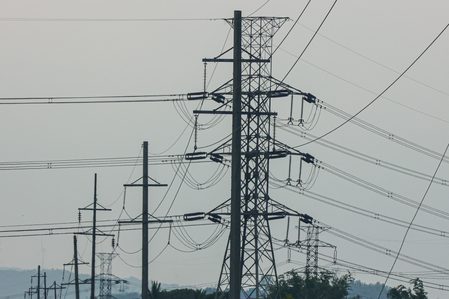



![[ANALYSIS] Why do we pay higher power rates when we have power outages?](https://www.rappler.com/tachyon/2024/07/tl-higher-power-rates-higher-power-outages.jpg?resize=257%2C257&crop=401px%2C0px%2C1080px%2C1080px)


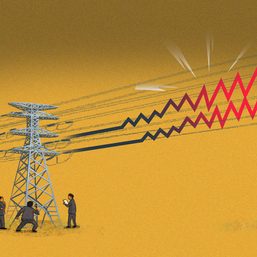
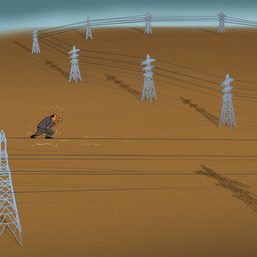
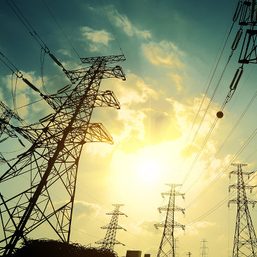
![[Vantage Point] Philippine economic reforms run into headwinds](https://www.rappler.com/tachyon/2024/05/ph-economic-headwind-may-2024.jpg?resize=257%2C257&crop_strategy=attention)
![[ANALYSIS] Promoting PPP via a sufficiently empowered media](https://www.rappler.com/tachyon/2024/04/PPP-and-media.jpg?resize=257%2C257&crop=365px%2C0px%2C720px%2C720px)
![[In This Economy] Here’s a new paper by UP economists on economic charter change](https://www.rappler.com/tachyon/2024/04/TL-foreign-direct-investments-apr-12-2024.jpg?resize=257%2C257&crop=299px%2C0px%2C720px%2C720px)
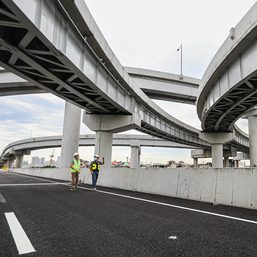
![[Hindi ito Marites] Japan: From enemy to bestie](https://www.rappler.com/tachyon/2024/07/Hindi-ito-Marites-TC-ls-7.jpg?resize=257%2C257&crop=415px%2C0px%2C1080px%2C1080px)

![[Just Saying] Invoke the Mutual Defense Treaty](https://www.rappler.com/tachyon/2024/06/TL-invoke-mutual-defense-treaty-June-25-2024.jpg?resize=257%2C257&crop_strategy=attention)
![[EDITORIAL] Paano nangyari na naging mayor ang isa umanong Chinese asset?](https://www.rappler.com/tachyon/2024/05/animated-bamban-mayor-illegal-carousel-revised.jpg?resize=257%2C257&crop_strategy=attention)




![[Just Saying] SONA 2024: Some disturbing points](https://www.rappler.com/tachyon/2024/07/TL-marcos-sona-points-july-23-2024.jpg?resize=257%2C257&crop=335px%2C0px%2C720px%2C720px)

There are no comments yet. Add your comment to start the conversation.